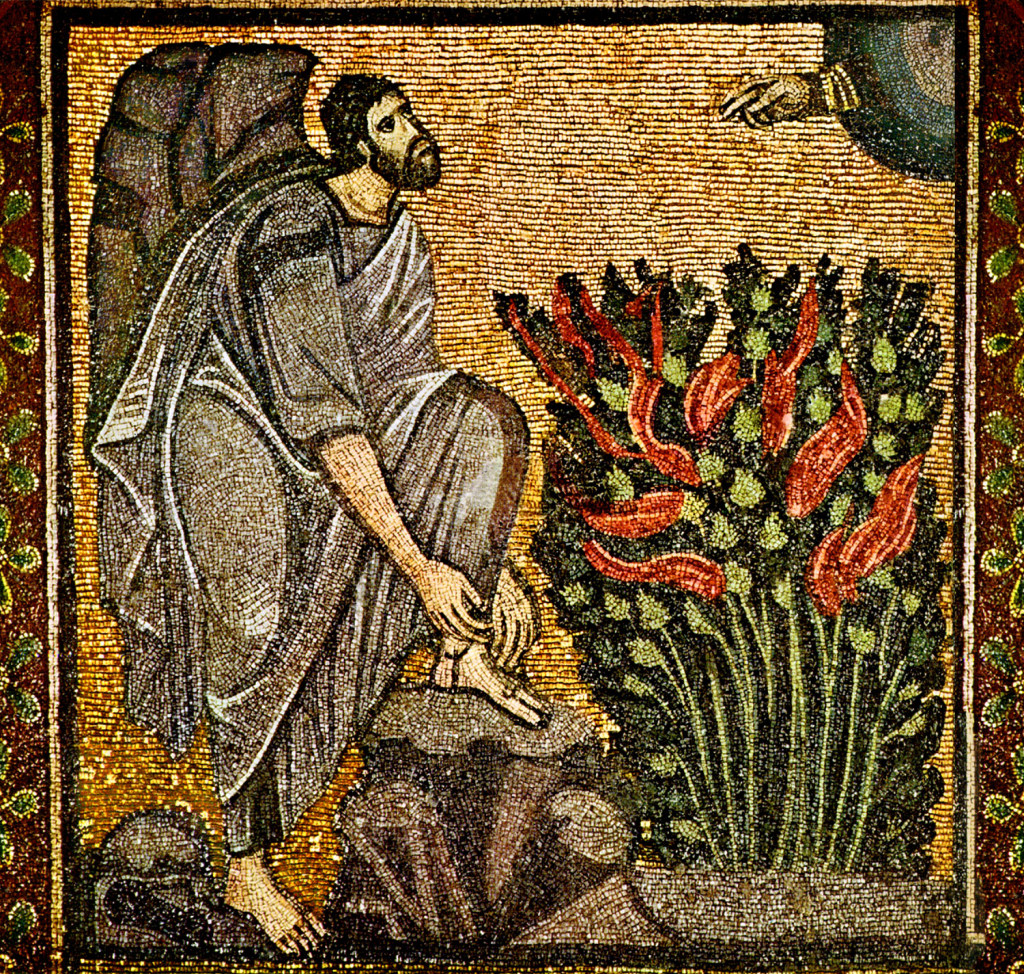
“In the beginning God created the heaven and the earth. And the earth was without form, and void; and darkness was upon the face of the deep. And the Spirit of God moved upon the face of the waters. And God said, Let there be light: and there was light.” (Ge 1:1-3)
These first words of the Bible (starting in the Book of Genesis, Chapter 1, Verse 1, i.e. Ge 1:1) begin to describe the original creation of the universe. But this is not, in fact, the beginning of the Bible story: God’s Word describes things that existed before His creation of “the heaven and the earth.” As we’ve already seen in the Gospel of John (Joh 1:1), for example, “the Word” (Jesus Christ) was both “with God” and “was God” before He set about creating the universe. This is a more abstract concept than it might first appear: both space and time are a part of His created universe. If God existed before creation, then God existed outside of time. Jesus confirms this as an ongoing condition when He made this mind-stretching statement to some of His Jewish detractors:
“Jesus said unto them, Verily, verily, I say unto you, Before Abraham was, I am.” (Joh 8:58)
And this is not the first time Jesus used this outside-of-time term to describe himself. Many centuries before He became a man, Jesus spoke to Moses from a burning bush:
“And Moses said unto God, Behold, when I come unto the children of Israel, and shall say unto them, The God of your fathers hath sent me unto you; and they shall say to me, What is his name? what shall I say unto them? And God said unto Moses, I AM THAT I AM: and he said, Thus shalt thou say unto the children of Israel, I AM hath sent me unto you.” (Ex 3:13-14)

- Byzantine mosaic depicting an astounding conversation between Moses and the pre-incarnate Jesus Christ.
With each of us constrained to live our lives from one moment to the next, it seems safe to say that none of us can fully grasp how God sees His creation . . . the beginning and end of all things laid bare before Him . . . simultaneously. But at least understanding that this attribute of God exists is important, because some of us are also mentioned before the world was created:
“According as he hath chosen us in him before the foundation of the world, that we should be holy and without blame before him in love: Having predestinated us unto the adoption of children by Jesus Christ to himself, according to the good pleasure of his will . . .” (Eph 1:4-5, emphasis added)
These (and many other) passages from God’s Word tell us that God had a specific purpose in mind when He created the universe – and when He created man. (After all, only an irrational being would embark on an undertaking with no purpose whatsoever, correct?) And as we’ve previously discussed, God’s omnipotence assures us that it is impossible for any of His purposes to be thwarted: whatever God purposes will occur, exactly where, when and how He wishes it to. Anything less strips God of His title. This is critical to remember as we examine God’s purposes in creating the World – and man in particular:
“And God said, Let us make man in our image, after our likeness: and let them have dominion over the fish of the sea, and over the fowl of the air, and over the cattle, and over all the earth, and over every creeping thing that creepeth upon the earth.” (Ge 1:26)
The Hebrew word for “image” (tseh’-lem) and “likeness” (dem-ooth’) both translate as, “resemblance.” By definition, God is incapable of being – or creating – anything that is flawed or evil in any way: to do so would again violate His attributes. So this verse shows us one of God’s un-thwart-able purposes in creating man: that this “resemblance” would include the absence of evil – the absence of sin. Man’s original sinless state is what we find recorded in the Genesis account of the first man and woman. According to this account, God’s creative work was completed in six days; He then confirms the flawless, sinless nature of this creation (including man):
“So God created man in his own image, in the image of God created he him; male and female created he them . . . And God saw every thing that he had made, and, behold, it was very good. And the evening and the morning were the sixth day.” (Ge 1:27,31)
Obviously, God would not declare His creation “very good” if it was evil in any way.
Going back to verse 26 above, we also note that God’s original purpose in creation was that man would have “dominion over . . . all the earth.” This is not to say that God surrendered any of His power over the earth; He simply didn’t need to: remember, Adam was created “in the image” of God. So long as Adam remained that way, God was free to run the earth through Adam – as His steward, or caretaker:
“And the LORD God took the man, and put him into the garden of Eden to dress it and to keep it.” (Ge 2:15)
The key points to take from this page: God’s original order – and purpose – in creating the universe did not include the existence evil . . . the existence of sin. His holiness precluded evil by His own creative hand. God’s original intent was for man to have dominion over the earth. God’s omnipotence requires these – and all other – of His purposes to ultimately be fulfilled.
With all of this in mind . . . what happens next in the Genesis account appears to be nothing less than catastrophic – at least at first glance. Let’s examine that here.
